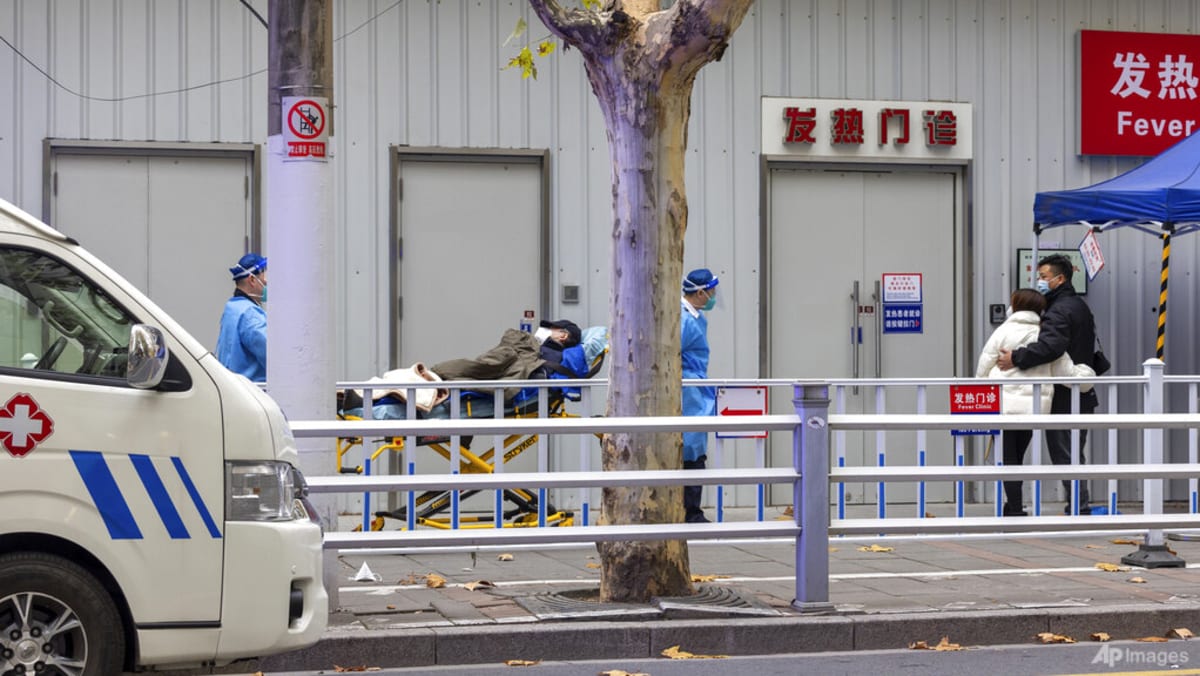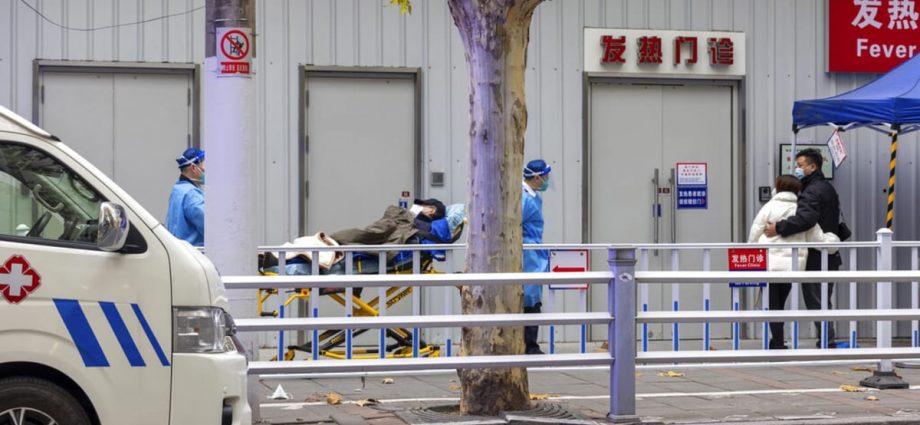
Shanghai residents endured a two-month lockdown which ended on Jun 1, with many losing income and having poor access to basic necessities. Hundreds died and hundreds of thousands were infected during those two months.
Experts say China could face more than a million COVID-19 deaths next year, given relatively low full vaccination rates among its vulnerable elderly population.
China’s vaccination rate is above 90 per cent, but the rate for adults who have received booster shots drops to 57.9 per cent, and to 42.3 per cent for people aged 80 and above, government data shows.
At a hospital in Beijing, footage from state television CCTV showed rows of elderly patients in the intensive care unit breathing through oxygen masks. It was unclear how many had COVID-19.
The deputy director of the hospital’s emergency department, Han Xue, told CCTV they were receiving 400 patients a day, four times more than usual.
“These patients are all elderly people who have underlying diseases, fever and respiratory infection, and they are in a very serious condition,” Han said.
The head of the World Health Organization said it is concerned about the spike in infections and is supporting the government to focus on vaccinating those at the highest risk.
WHO Director-General Tedros Adhanom Ghebreyesus told reporters the agency needed more detailed information on disease severity, hospital admissions and requirements for intensive care units for a comprehensive assessment.
FREE MEDICINE
China’s policy U-turn caught a fragile health system unprepared, with hospitals scrambling for beds and blood, pharmacies for drugs and authorities racing to build special clinics.
Smaller cities away from the affluent eastern and southern coast are particularly vulnerable. Tongchuan, a city of 700,000 in the northwestern Shaanxi province, called on Wednesday for all medical workers who retired in the past five years to join the battle against COVID-19.
“Medical institutions at all levels in the city are under great pressure,” it said in a public notice.
State media said local governments were trying to tackle drug shortages, while pharmaceutical companies were working extra time to boost supplies.
Cities across the country were distributing millions of ibuprofen tablets to medical institutions and retail pharmacies, according to a report in the state-run Global Times.

